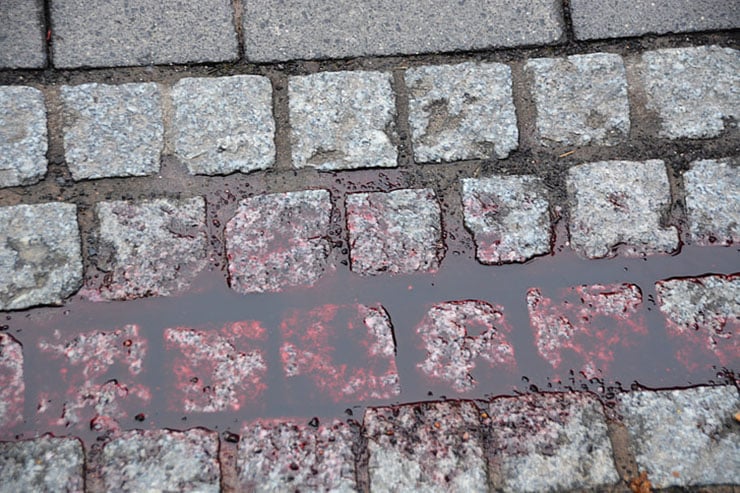A trail of blood ran from Francisco Javier Cuellar’s living room through his front door into the driveway and toward a lake near where his killer wandered in the dark.
That was where police found Yery Noel Medina Ulloa, an illegal immigrant from Honduras. Cuellar had opened his home to Ulloa and gave him a job at the family store in Jacksonville, Florida. The two got into an argument one day that ended with Ulloa stabbing Cuellar “numerous times and repeatedly hitting him with a chair,” local police said.
The Cuellar case came to mind with the more recent murder of a nursing student named Laken Riley in Athens, Georgia. This time, it was an illegal immigrant from Venezuela, Jose Antonio Ibarra. He beat Riley to death while she was out on a jog and left her body in a wooded area. Discarded like refuse. Ibarra mauled her so badly that he left Riley, a pretty girl, with a disfigured skull. She was 22.
It is easy to become numb to these stories. The violence always seems utterly senseless, lives ending with the abruptness and brutality of lightning strikes that leave forests ablaze in their wake. They happen so often now that it is hard to keep track. We gradually acquiesce to the fact that the new America is a less safe place where social trust is becoming a thing of the past.
There are different ways to look at trust. Political scientists and economists have long argued that trust in strangers is a key ingredient in the wealth of nations because, without it, they cannot pool resources together to undertake projects larger than what an individual or a single family could accomplish alone.
It’s also reflected in little things, like the fact parents in high-trust Nordic countries like Denmark leave their babies outside to nap in subzero temperatures. It doesn’t occur to them that someone would snatch a child. Denmark has adopted immigration and asylum policies that have been characterized as “harsh” and “repressive.” But the Danes can have their kids sleep long and deeply in the snow.
You can’t really do that in America. It’s not just because of immigration—but immigration is a major factor. The Ulloa and Ibarra cases are illustrative as they are increasingly common.
Ulloa posed as an unaccompanied minor using a fake name when immigration agents in McAllen, Texas, picked him up. He knew how to game the system. He knew pretending to be a 17-year-old Honduran kid guaranteed he would not be sent packing but instead placed in a shelter. He knew it would make people trust him. And that’s exactly what happened.
When Cuellar gave Ulloa, apparently a total stranger, a place to stay and gainful employment, it was also an act of trust.
In return, Ulloa stabbed and beat the father of four to death. It was only later that authorities discovered Ulloa’s ruse, that he was a grown man who exploited the trust of others.
Ibarra has a similar story.
He was nabbed trying to cross the border in Texas in September 2022 by U.S. Customs and Border Patrol. Immigration officials reportedly set him loose due to overcrowding.
According to Immigration and Customs Enforcement, he was picked up again later and charged “with acting in a manner to injure a child less than 17 and a motor vehicle license violation.” And once again, Ibarra was let go, this time by the New York Police Department.
Venezuelans have benefited from policies adopted by Donald Trump and Joe Biden that protect them against deportation. Both presidents decided that public safety—public trust—was less important than pandering to this ethnic bloc, white lambs each and all. In reality, so many criminals have come to the U.S. from Venezuela that the latter’s violent death rate has plummeted.
That’s why Laken Riley is dead. It’s also why, around the time she was killed, another illegal immigrant from Venezuela named Renzo Mendoza was arrested and charged with sexually assaulting a minor.
Would you blink if I told you he was detained and released by U.S. Customs and Border Patrol? You wouldn’t. You’d just remember to trust your neighbor a little less. That’s how civilizations die more often than some cataclysmic event. It’s death by a thousand cuts that bleed the body politic dry until there is no such thing to speak of.

Leave a Reply